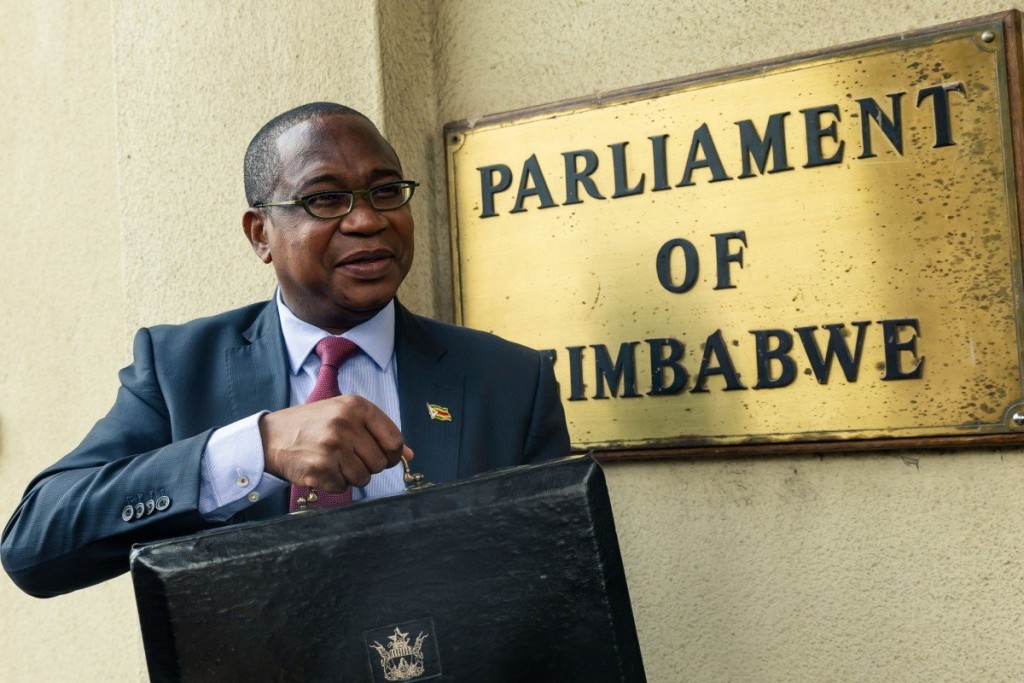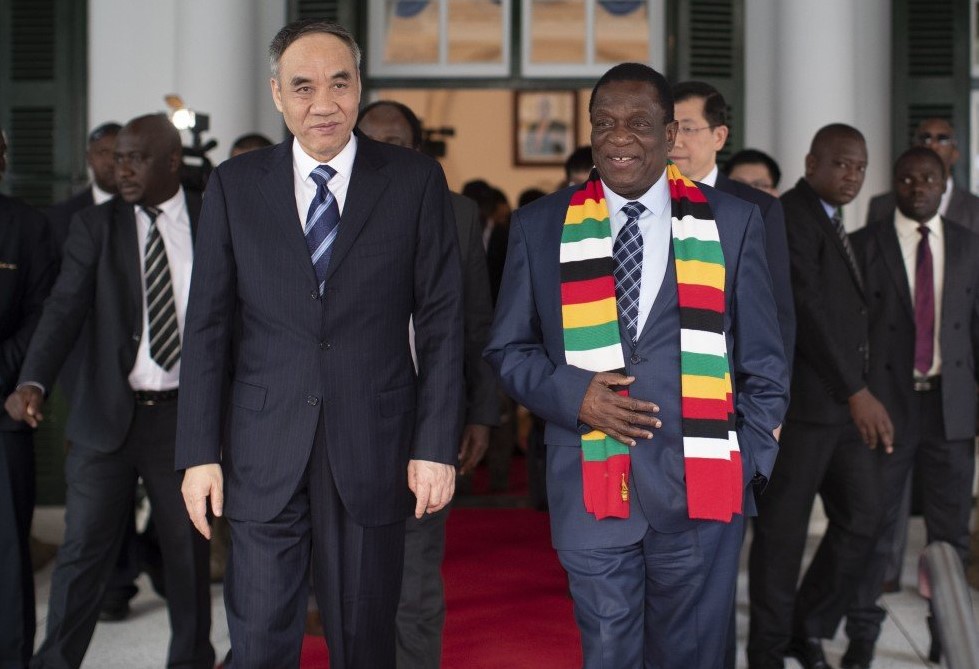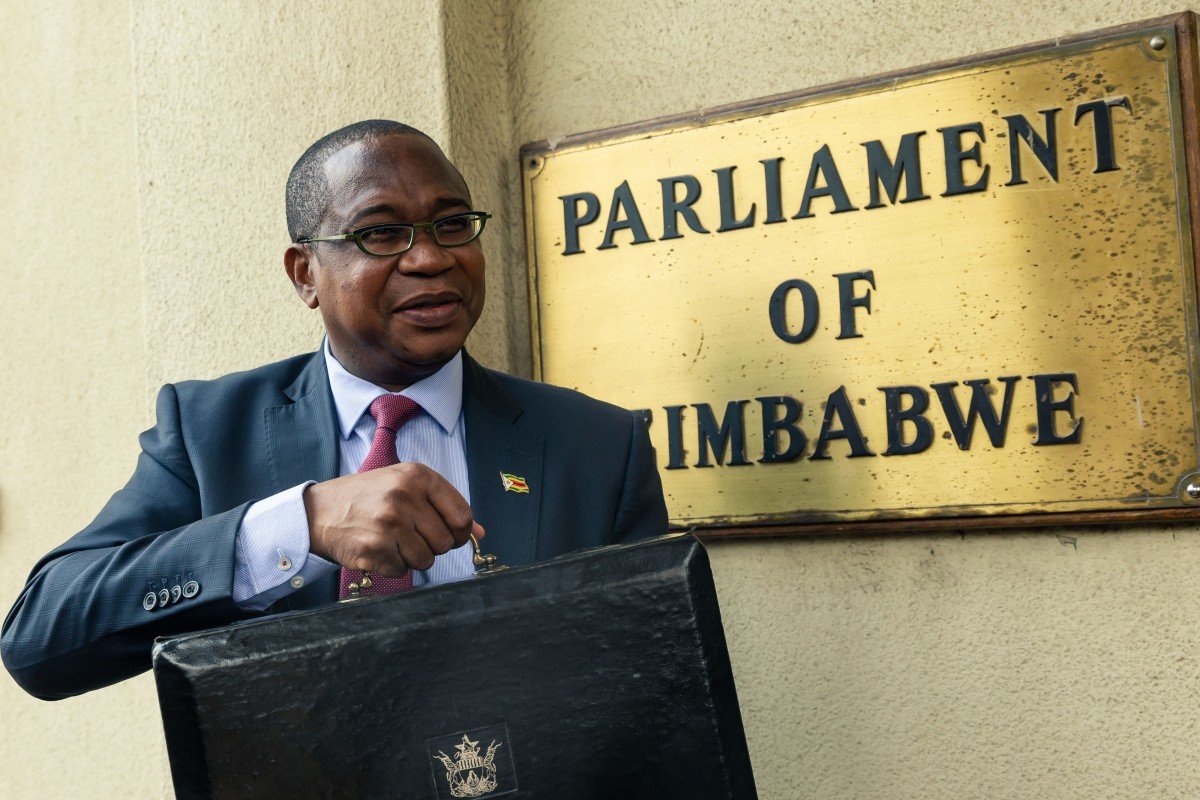China reacts to Zimbabwe understating aid figure

BY ALAN GREEN
During the presentation last week of the 2020 budget, Zimbabwe’s finance minister, Mthuli Ncube, stated Chinese aid to his country through September to be US$3.6 million, a number contested by the Chinese government which put the figure at close to US$137 million and accused the minister of making a “serious mistake.”
Beijing’s deputy ambassador to Zimbabwe, Zhao Baogang, wasted no time before saying that “The Zimbabwean officials must give a full and convincing explanation.” A statement issued by the embassy says that, according to its records, Chinese financial aid to the Southern African nation in that period totals US$133.2 million. This figure, the embassy noted, does not include other forms of financial support, such as the cost of providing expert help and donations made by the mission itself to local groups. That, the embassy added, puts the aid figure at US$136.8 million. The Chinese representation in Harare then urged the host government to
“make a comprehensive assessment of the bilateral support figures and accurately reflect the actual situation when formulating the budget statement.”
Following the reaction of the Chinese government, Zimbabwe’s Ministry of Information, Publicity and Broadcasting said it was holding talks with the Chinese government on the matter:
“The government has noted the query raised by the Chinese embassy regarding aid figures … [and] consultations are under way to establish a common accounting position.”
The relationship between Harare and Beijing dates back more than half a century. China was a staunch supporter of then-Rodhesia’s struggle to free itself from the colonial yoke by training the guerillas of the Zimbabwe African National Liberation Army, the military wing of Robert Mugabe’s Zimbabwe African National Union-Patriotic Front, and by providing them with arms.
Despite Zimbabwe falling out of grace much later in the west because of its land reform policy, China has remained a staunch supporter, diplomatically and financially.

That has not changed under current president Emmerson Mnangagwa—one of the ZANU’s militants trained in China—who succeeded Mugabe two years ago, despite Chinese officials’ dissatisfaction with the new president’s failure to improve governance (Mugabe’s biggest flaw.) One clear illustration is the new parliament building under construction thanks to a whopping US$140 million grant by Beijing. The construction of the potentially impressive six-storey building is expected to be completed in 2021.
The discrepancy between the figure unveiled by finance minister Mthuli Ncube and that of China’s embassy in Zimbabwe will most likely trigger criticism in opposition circles in Zimbabwe as did the diversion of US$10 million from an escrow account for the expansion of the Robert Gabriel Mugabe International Airport in the face of the country being hit by an acute shortage of foreign currency. Opposition leaders have accused the ruling Zimbabwe African National Union-Patriotic Front of misreporting its debts and accepting foreign loans without parliament’s approval. But both Chinese and Zimbabwean officials denied the persistent media reports about the suspension of US$1.3 billion in lending for three key Chinese-led projects in the country.


